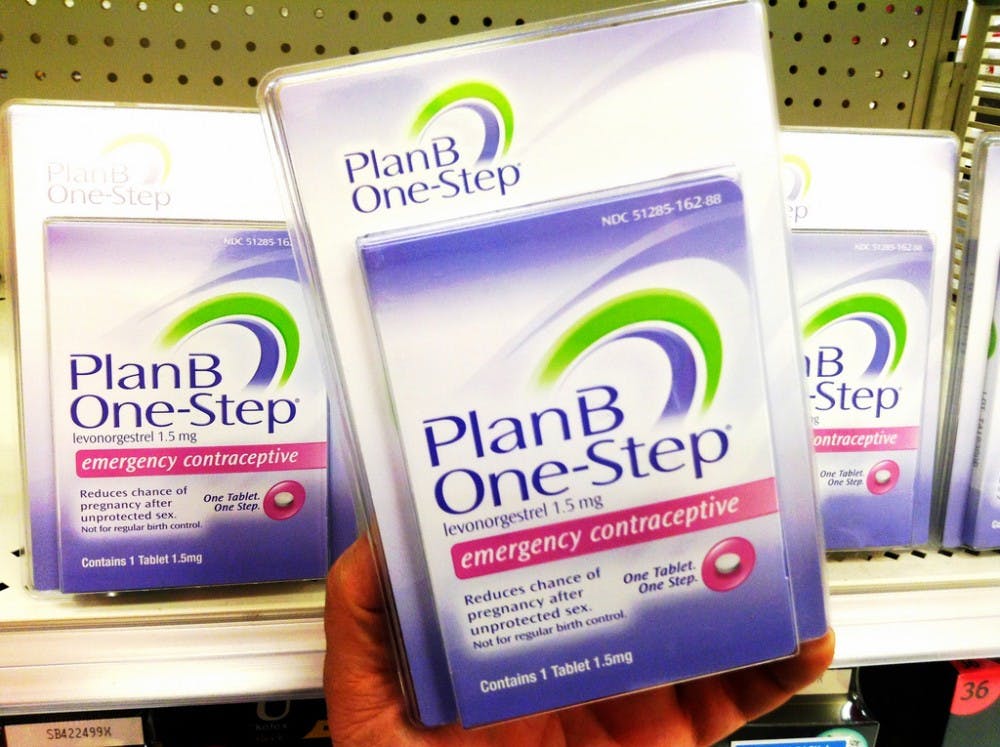The panic rises from your stomach, shakes in your chest. It's the morning after. And you don't know what to do.
Probably one of the worst post–intimacy feelings is the anxiety after unprotected sex occurs. Condoms break, accidents happen, and extra precautions sometimes need to be taken. Despite our best intentions, sometimes it is just an "oh shit" moment. So, what happens next? Where do you go from there?
Well, probably to the drugstore. The morning–after pill, also (aptly) known as Plan B, is available over the counter for around $35–$60, depending on if you buy the generic brand or not. The morning–after pill isn’t the same as an abortion pill, which will terminate an early–stage pregnancy. Rather, Plan B and its equivalents are a one–time pill that prevents pregnancy by delivering a high dosage of levonorgestrel, a hormone that can delay ovulation, prevent fertilization, or prevent a fertilized egg from attaching to the uterus.
And Plan B really should only be used as Plan B. Though multiple uses of Plan B hasn’t been proven to be harmful to a woman’s health or fertility, it’s not a great continual birth control method because it doesn’t protect against STIs—and let’s not forget, Penn has been shown to have one of the highest rates of STIs on campuses nationwide.
But, if you need Plan B, don’t let the hefty price tag of the pill dissuade you from seeking it out. It’s always better to be safe than sorry, and, fortunately, if you go to Women’s Health at SHS with the proper paperwork, you can purchase an emergency contraception pill for around $20. SHS can also write you a script for emergency contraception that can be refilled up to three times. Depending on your insurance, it may cover the whole cost of the pill, but even if it doesn't, insurance should subsidize it in some capacity. This way, you can have one waiting, on hand, in case you do have an "oh shit" moment. If you aren’t on the pill, it might even be a good idea to make an appointment with SHS proactively, just to have the script on hand if one day you really need it. I spoke with a nurse practitioner at SHS, who said that they offered this to anyone who was not on a reliable form of birth control. "With a prescription you don't have to pay, and because the cost [of plan B] can often be a deterrent we do what we can to help." She made sure to add, "there are also free condoms available at the cashier!"
However, if your insurance doesn't cover Plan B fully, or if it only covers a certain portion of the cost, and you're left with the "who's paying?" question, it's perfectly acceptable to ask your partner to pitch it. While there is some debate over who exactly should be fiscally responsible. As James* (C'18) puts it, "At the end of the day, I think it is the responsibility of the male if he does fuck up, but he's hard for me to give a consensus on [who should pay] because of the underlaying factors of the situation."
David* (W'19), disagrees, however, saying "I think it is on both parties to pay for it. It was an action that involved both people that led to the necessity of the pill."
After all, it takes two to tango, and it should take two to handle the aftermath, from going to the pharmacy to pick it up, to handling the cost at the register. Now with apps like Venmo, it's easier than ever to split the bill.
Contrary to its name, you don’t have to wait until the morning to get Plan B. You can take it as soon as unprotected sex has occurred, though you should take it before 72 hours after unprotected sex has occurred for maximum efficacy. If you find yourself in a bind, there is another version of the morning after pill, called Ella, that is effective up to five days post–unprotected sex, but Ella is only available through prescription.
For some people, the pill will have no side effects. The nurse practitioner I spoke with said, you "may experience some nausea and your next period may be delayed." As for the other purported side effects such as: spotting, breast tenderness, dizziness, headache, fatigue and cramps, those are "relatively rare, but in the literature."
Check out this feature for more Street coverage on contraception and hook up culture.
*Names have been changed because of the sensitivity of the topics discussed.

